 When I was younger I used to feel like a victim a lot of the time. No matter how many things were going well in my life, I could tell a story I felt bad about. I didn’t know at the time that I was indulging in a victim story. Even when my situation was comparatively easier than that of many people around me, I found a way to focus on the victim story and not take responsibility for my own choices.
When I was younger I used to feel like a victim a lot of the time. No matter how many things were going well in my life, I could tell a story I felt bad about. I didn’t know at the time that I was indulging in a victim story. Even when my situation was comparatively easier than that of many people around me, I found a way to focus on the victim story and not take responsibility for my own choices.
I think everyone has done this at some point without realizing it. It doesn’t necessarily have to be something one does consistently. It can be a habit that creeps up, usually in times of stress and change. After all, periods of scary, risky change are the perfect time to dwell on old, familiar stories that relieve us of responsibility.
When I became conscious of this habit, I started to notice how my story changed throughout my life. Some victim stories got old and were abandoned as new ones and new situations were created. Even though I took responsibility and action in my life, I also experienced the conflict of having a sad story that I indulged in from time to time.
Getting Conscious About the Victim Story
The first time I ever thought about this in a conscious was when I was exposed to the idea that having a story is limiting. I was reading an article about dating and relationships, and the point of the article was that people often lack confidence in these areas because they have a story they tell themselves that keeps them stuck. Sometimes people don’t try new things and take risks because they have a story they tell themselves about who they are and what has happened to them in the past. They don’t think about how they can create a new story for themselves in the moment.
I’ve noticed over time that I feel like indulging in victim stories less and less. There is freedom in letting go of your story. The real strength happens when you let go and direct the course of what you have in the moment.
I recently caught an episode of Oprah’s Lifeclass on her channel Own with relationship expert Iyanla Vanzant. She was talking to a man who was a recovering from drug addiction and asked him why his life wasn’t exactly as he wanted it to be. As he proceeded to tell his story, she very compassionately explained that he had traded his drug addiction for an addiction to his story. After it was brought out into the open, Iyanla noticed this habit in several people who spoke after him. She pointed out that when they shared the horrible things they had been through, they chose to speak of those things from the point of view of a victim and not from a place of empowerment, even though both perspectives could be based on fact. Iyanla even remarked that one woman was so distraught telling her story that she wasn’t even feeling any excitement about the fact that she was sharing it with Oprah and millions of viewers!
Exploring Your Story for Empowerment
That being said, I do believe there is some value to looking at the story of your life. I like to look at waking life as similar to being in a dream. I once read (I think it was in Jung’s Synchronicity) that strange coincidences happening in a dream make sense since we have control of the outcome within the dream. For example, if you dream that a waiter in a restaurant correctly guesses what you would like to order, it is not so shocking because within the dream you are your desire and the waiter’s guess. Everything in the dream is connected to you. Synchronicities may happen in waking life, because everything is connected at a fundamental level far greater than we can perceive.
I like to look for interconnections in the story of my life and the lives of others. I think it’s important to see the overarching plot or themes of your life to get a bigger perspective.
I look for symbols, such as the archetypal roles of various key players in life (do several people fulfill a key role in your life at different times and all have the same name? Does a particular person always return to your life at the end of a cycle or transition?).
Can a specific situation symbolize a problem you’re having in a surrealistic way–the way you might interpret symbolic imagery in a dream or a novel?
Can you relate your specific challenge at the moment to a classic story of triumph, a fairy tale, spiritual teaching, or great classic?
If you approach your story this way rather than as a victim story, it can be helpful to get a better sense of who you are and what your journey is. The important thing to remember is to make sure that you are seeing yourself as a hero/heroine rather than a victim and derive empowerment from your story. There is no need to be attached to it. Our stories are always constantly changing with our perspectives and circumstances. We are always in a place of empowerment to create something new.
What do you think? Do you find viewing your life as a story more helpful or harmful? Leave a comment and share your perspective. 🙂
Do you have any questions you would like me to answer in my weekly blog post? Send your questions to Christina@CoachingWithChristina.com.
Would you like to find out the best way you (and only you) can create a targeted plan to manifest your dream and remove emotional blockages that are getting in your way?
Call me for a private coaching session to find out the easiest way to get clear and take your life to the next level. We can do a lot during a free session!
Call 610-420-3040 or email me at Christina@CoachingWithChristina.com
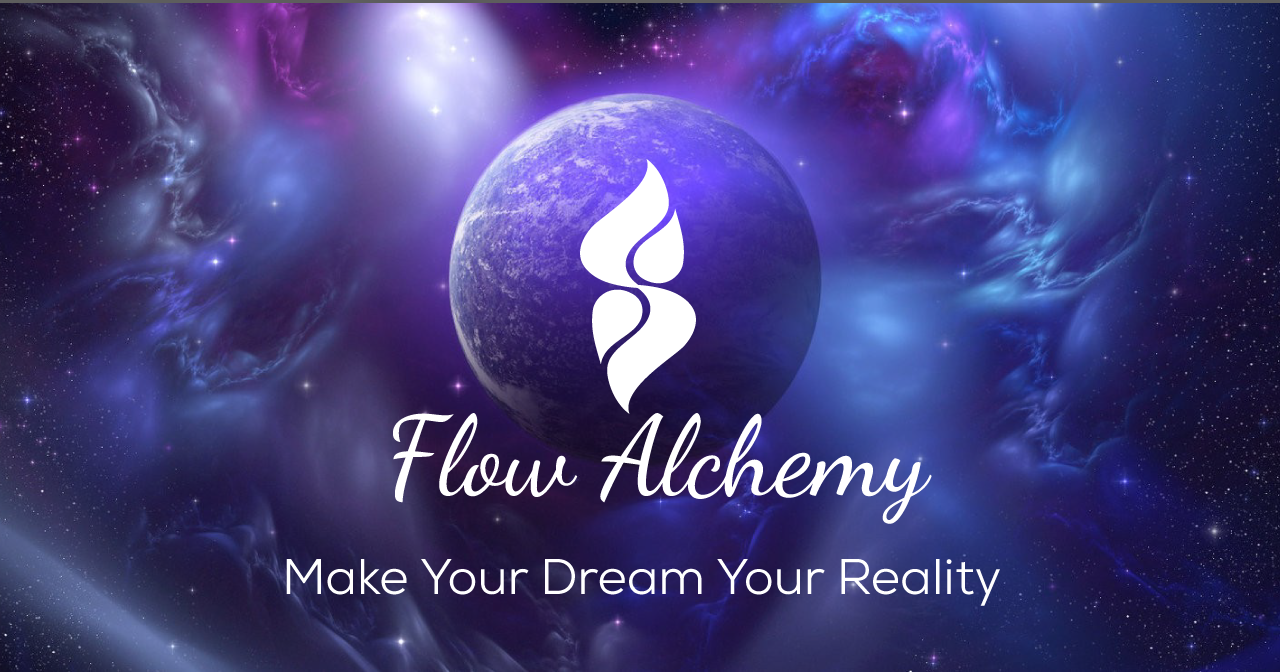

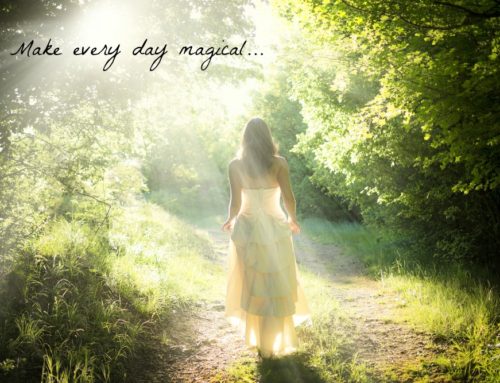
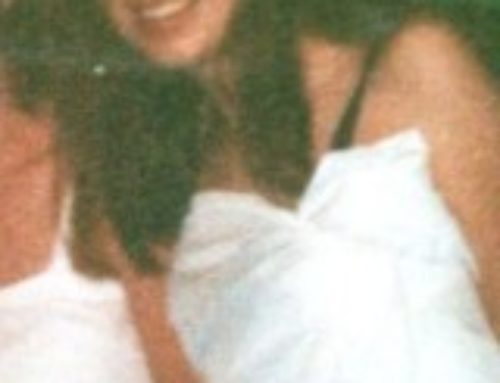
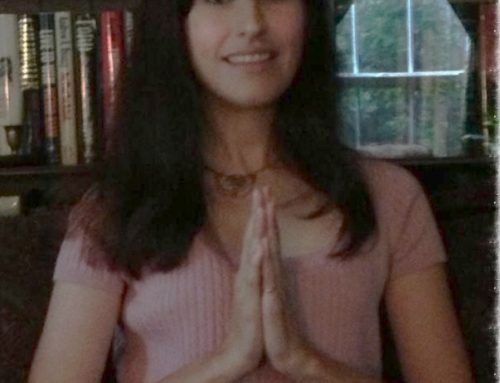
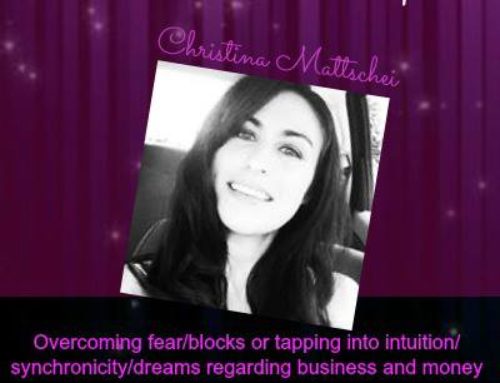
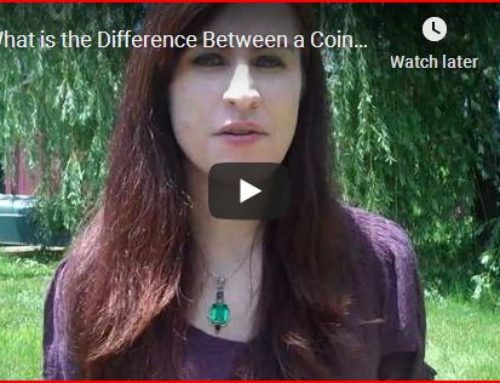
I feel like this article is a good reminder about inviting positive energy into your life. It doesn’t just show up, you have to invite it and perpetuate it.
I recently took a workshop on ayurvedic medicine/yoga and I discovered that my dosha or constitution is pitta (fire, water) which has a tendency to manifest imbalances in a way where temper can and often DOES get heated. I find when I’m “all fired up” and addicted to my own anger, bad things happen to me to perpetuate my stories and I DO get addicted to them and to being angry. I kind of feel like being aware of this is half the battle. When I start to get fired up, I tell myself that my pitta is imbalanced and that I need to calm down and let whatever is pissing me off go. Just knowing that sort of resets my whole day…like a clean slate.
Hey Linsey,
That sounds like a really cool workshop–I would love to learn more about the Ayurvedic approach. And that totally happens to me too! Except with me it’s more the emotion sadness. Sometimes I disconnect from it rather than feeling it fully and it becomes more of an angsty wallowing. I have to do the same thing–notice that I’m off balance and change direction. Which isn’t always easy, but I totally agree that just remembering to do it is half the battle!
~Christina
Hi Christina:
Thank you very much for creating such a useful site.
Hi Nanu,
Thank you for your feedback! I really appreciate it 🙂
~Christina
I love your thoughtful inquiry into story, Christina! Thanks for reminding us that we can inspire our lives by comparing them to classic stories of triumph, myths or fairy tales. I guess my life is like Siddhartha’s life ~ he left his family to learn more, to meet all kinds of people. He lived in great solitude, simplicity, even poverty. And then after awakening, he went back to helping others.
Hi Martine,
Thank you! I really identify with the Siddhartha archetype too–for me in terms of living a sheltered life, learning more about the world, and then being willing to give up materialistic constraints for truth and authenticity. It’s a beautiful story to connect with!
~Christina
Love this Christina Exploring Your Story for Empowerment Just today while planning my Heart Whisper revolution I got that my story was going to be central to what i will be doing, so timely to read this thank you xx
Hi Suzie,
Thanks–that’s wonderful to hear! I love how your story gives you empowerment, and I’m very curious about your Heart Whisper Revolution. Keep me posted!
~Christina
Hi Christina,
I really enjoyed this post and the comments that came in before mine. We can all fall in love with a victim story if we’re not careful (it’s so much easier to blame others). As a professional in the recruitment industry, I can tell you that this state is pretty easy to detect during job interviews and it holds people back from getting a position they’re qualified for. Leaving victim status behind gives us a great story to tell that is centred on resilience and self awareness instead of reliving all the wrongs of the past.
Hi Susan,
That’s really interesting how having a victim story can even affect a job interview and prevent someone from moving forward. It’s ironic that someone can be holding onto their victim story even when in a position to potentially change it (like during a job interview). What a great reminder to be more conscious–thank you for sharing!
~Christina
Great post Christina …exploring your story for empowerment resonates with me and certainely with many people who have been turning inward for answers. Like you, I was often comparing myself when I was young. I use to cry a lot and in all the sports I practiced like gymnastics and Diving, I use to think all the other girls were better then me. I would sabotage my skills and abilities all the time by not giving my 100% always giving an excuse that I would not win anyway…pretty sad…It took a while to change all that and I now see how many ooportunity to shine I missed. I am now all about empowerment and I feel great! I often meditate to visit that 13 year old girl who missed the medal and talk with he. I tell her she did awesome and she’s the best!! She is Gold Materiel to me 😉
Hi Nathalie,
Thank you for sharing your experience! I love your solution of meditating to show compassion for your younger self. That is brilliant! I will be trying that myself 🙂
~Christina